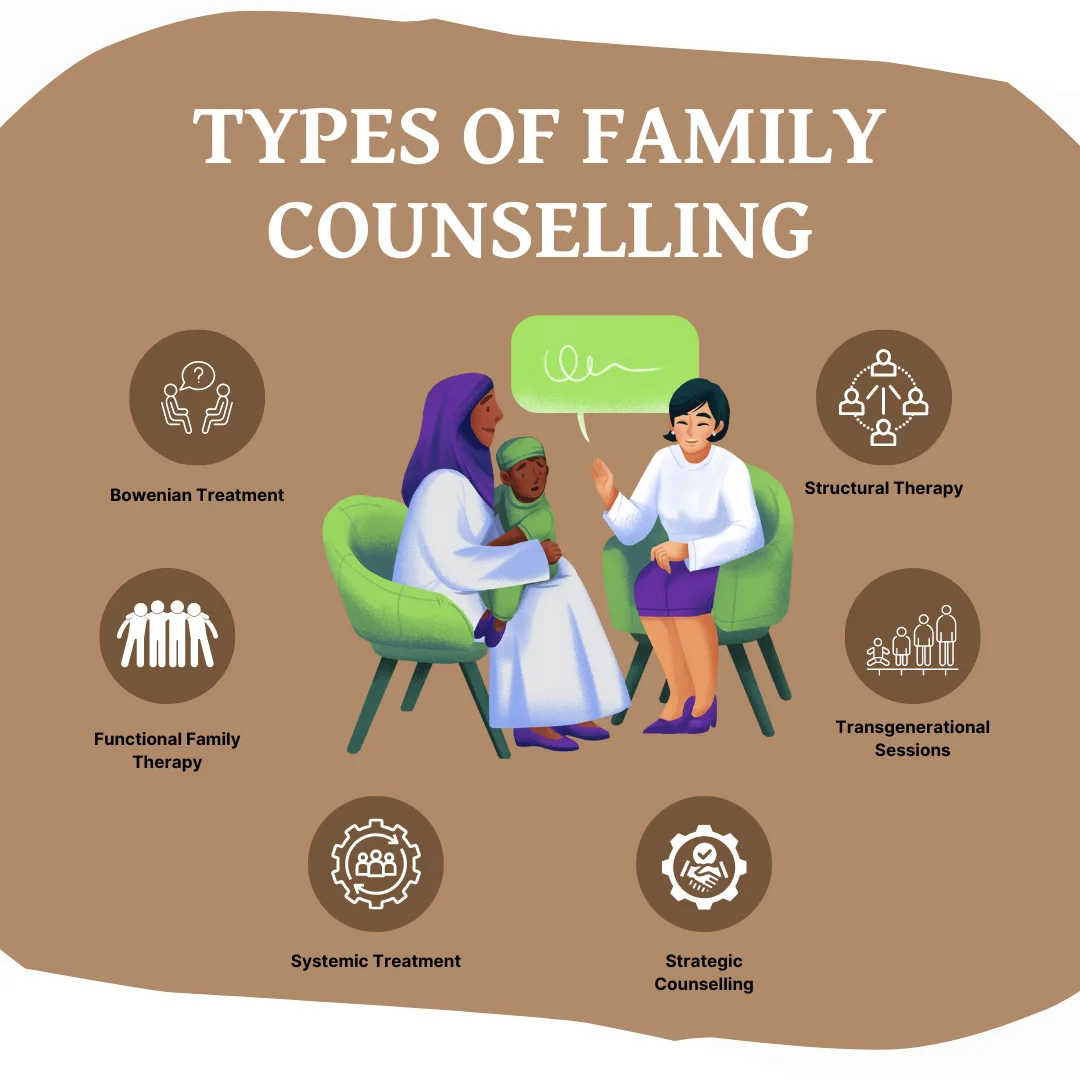The Advantages of couples counselling for Newlyweds
Exploring the Benefits of Virtual Therapy in Modern Mental Health And Wellness Care
The increase of virtual therapy notes a significant shift in psychological wellness care. It uses boosted availability, permitting people from varied histories to seek help without geographical restrictions. Flexibility in organizing suits differing lifestyles, while the comfort of home can foster visibility. Nevertheless, the implications of these changes extend past simple comfort. The progressing landscape of therapy raises essential inquiries concerning its long-term results on person interaction and therapy outcomes.
Boosted Access for All
Traditional therapy often offers barriers such as geographical area and organizing conflicts, virtual therapy greatly boosts ease of access for people seeking psychological health assistance. By removing the requirement for physical traveling, virtual therapy enables clients from remote areas or those with flexibility difficulties to get in touch with certified professionals. This mode of therapy can reach underserved populaces that may do not have local psychological health and wellness sources, thus addressing variations in access to care. In addition, virtual systems can accommodate diverse demands, using solutions in several languages and fitting various social histories. Customers can engage with a broader array of specialists, offering them with options that align with their details needs and choices. This raised access fosters a much more comprehensive atmosphere, allowing individuals to seek assistance without the stigma often related to in-person gos to. Overall, virtual therapy represents a significant innovation in making mental health and wellness treatment a lot more accessible to all.
Versatility in Organizing Sessions

As virtual therapy remains to acquire grip, its intrinsic versatility in organizing sessions proves to be a significant advantage for several people. Unlike conventional in-person therapy, virtual therapy allows clients to pick session times that best fit their individual and specialist commitments. This adaptability fits those with demanding job routines, family obligations, or other commitments that can make participating in physical visits testing.
Customers can quickly reschedule or readjust their sessions as needed, reducing the tension associated with rigid visit systems. The availability of various time ports throughout the week, consisting of evenings and weekend breaks, even more enhances availability. This versatility not just urges uniformity in participation but also promotes a greater dedication to the restorative process. Ultimately, the versatility in organizing sessions stands for a transformative shift in psychological healthcare, equipping people to prioritize their wellness without compromising various other aspects of their lives.
Convenience of a Familiar Environment
The comfort of a familiar setting substantially enhances the effectiveness of virtual therapy for several customers. Engaging in therapy from the security of their very own homes allows people to feel more comfortable, reducing anxiety that may come with typical in-person sessions. This experience can promote open interaction, allowing clients to reveal their ideas and feelings a lot more openly.
The presence of individual products and the capacity to control their surroundings can add to a feeling of security and relaxation. Clients frequently report that being in a comfy space allows them to focus a lot more on the restorative procedure instead of the establishing itself.
Additionally, the informal nature of virtual sessions can aid dissolve obstacles that might exist in a standard office setting, fostering a deeper connection with specialists. On the whole, the comfort of familiar surroundings plays an important role in boosting the therapeutic experience and performance for several individuals seeking psychological wellness support.
Wider Range of Therapeutic Alternatives
A broader range of healing alternatives comes to be available via virtual therapy, enabling clients to gain access to various modalities that might not be viable in traditional settings. This flexibility allows people to discover diverse strategies such as cognitive-behavioral therapy, mindfulness methods, art therapy, and even specialized interventions like trauma-informed care or dialectical actions therapy.
Moreover, clients can select from a wider range of specialists, consisting of those that focus on specific niche locations or specific populations, improving the likelihood of finding an ideal match. Virtual platforms often provide accessibility to group therapy sessions, assistance neighborhoods, and workshops that might be geographically unavailable or else.
This range equips clients to take part in their recovery procedure according to their unique choices and needs, potentially enhancing motivation and commitment to treatment. Because of this, the landscape of psychological healthcare comes to be more inclusive and versatile, catering to a wider variety of individual experiences and obstacles.
Lowered Preconception Bordering Therapy
Accessing therapy via virtual platforms adds to a considerable reduction in the preconception generally linked with psychological healthcare. By providing a discreet and exclusive atmosphere, virtual therapy enables individuals to seek assistance without the worry of being judged or recognized. This privacy interest those who might or else wait to go after in-person therapy because of social assumptions bordering mental wellness.
As the occurrence of virtual therapy increases, it normalizes the discussion around mental health, making it an extra acceptable part of day-to-day life. Individuals frequently feel extra comfy reviewing their experiences on the internet, promoting openness and lowering feelings of seclusion. The ease of access of these solutions also urges a wider demographic to involve with psychological health resources, cultivating a society of assistance instead of pity. Inevitably, the surge of virtual therapy plays an essential duty in reshaping attitudes in the direction of looking for help, adding to a much more approving culture relating to mental health obstacles.
Cost-Effectiveness and Affordability

Lowered Session Expenses
Lots of people seeking psychological health and wellness support discover that virtual therapy substantially reduces session expenses compared to standard in-person choices. The removal of traveling expenditures and time off work often adds to total savings. In addition, several virtual therapists use competitive rates because of reduced overhanging expenses linked with keeping a physical office. This change in expenditure permits clients to access top quality psychological health and wellness services without the monetary stress that might include traditional therapy. For numerous, this cost allows extra regular sessions, which can improve therapy outcomes. As an outcome, virtual therapy not just equalizes accessibility to psychological health care yet also supplies a lasting economic version that aligns with customers' budgets, making psychological wellness support extra possible for a bigger target market.
Increased Gain Access To Choices
While standard therapy frequently provides logistical obstacles, virtual therapy significantly increases gain access to options for people looking for psychological health and wellness care. By removing the demand for travel and allowing adaptable scheduling, virtual therapy fits diverse lifestyles and commitments. This ease of access is especially helpful for those in remote areas or with flexibility difficulties. Additionally, the cost-effectiveness of virtual therapy decreases monetary stress, making mental wellness solutions a lot more obtainable. Lots of platforms use tiered rates or sliding scale costs, promoting affordability. Insurance provider significantly recognize virtual therapy, further improving its monetary ease of access. On the whole, virtual therapy not only expands the range of who can get care however likewise addresses economic obstacles, making mental health and wellness support extra inclusive and obtainable for all.
Enhanced Continuity of Treatment
Improved connection of care emerges as a significant benefit of virtual therapy in contemporary psychological healthcare. This approach permits clients to preserve consistent interaction with their specialists, regardless of geographical barriers or scheduling disputes. couples counselling. The adaptability of virtual sessions promotes regular check-ins, which are necessary for checking progress and adjusting therapy intends as essential
Additionally, electronic health documents and telehealth systems assist in smooth information sharing amongst treatment suppliers. This interconnectedness guarantees that all experts involved in a person's treatment are updated on therapy growths, resulting in more coordinated and reliable treatments.
Patients commonly experience reduced stress and anxiety and raised engagement because of the benefit of accessing therapy from familiar settings. Such accessibility enhances adherence to therapy routines, eventually improving results - low cost therapy. To sum up, virtual therapy not just bridges spaces in psychological health services yet likewise strengthens the continuity of treatment, a critical part of effective therapeutic partnerships
Frequently Asked Inquiries
How Does Virtual Therapy Make Certain Confidentiality and Personal Privacy for Customers?
The current question addresses the steps virtual therapy uses to safeguard client confidentiality. Utilizing encrypted systems, secure copyrights, and conformity with guidelines like HIPAA, virtual therapy assurances that delicate information remains personal and hard to reach to unapproved people.
Can I Switch Therapists Easily in Virtual Therapy?
Switching over therapists in virtual therapy is usually straightforward. Clients can communicate their wish for an adjustment with the platform, allowing for adaptability in discovering a far better match without the logistical obstacles of in-person appointments.
What Technology Do I Required for Virtual Therapy Sessions?
To take part in virtual therapy sessions, an individual commonly requires a trustworthy web connection, a computer system or mobile phone with an electronic camera and microphone, and accessibility to a secure video clip conferencing system defined by their therapist.

Are Virtual Therapy Sessions as Effective as In-Person Procedure?
Recent studies indicate that virtual therapy sessions can be just as reliable as in-person sessions, depending upon the individual's choices and conditions. Variables such as convenience and availability might improve the general therapeutic experience for some clients.
What Should I Do if I Experience Technical Issues During a Session?
If technological problems arise during a session, one should smoothly communicate the trouble to the specialist, effort to reconnect, or switch to read more a back-up approach. Patience and versatility are important in handling these interruptions.